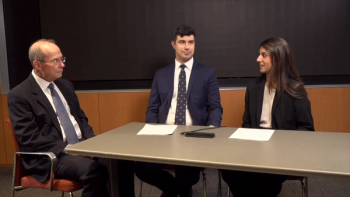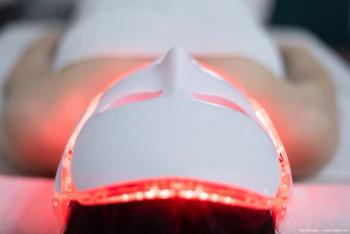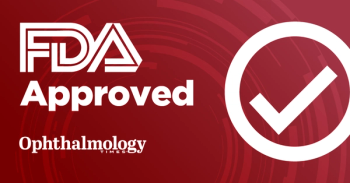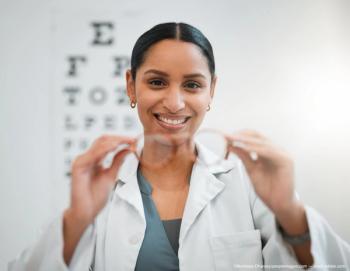
- Ophthalmology Times: June 15, 2021
- Volume 46
- Issue 10
App helps patients with cataracts have smoother surgery process
Technology enables physicians to provide and receive important information more quickly.
Reviewed by Tommy Korn, MD
Success of the surgery is enhanced by providing a patient with as much preoperative and postoperative information and guidance as possible, which can lead to fewer surgery cancellations and better clinical outcomes.
Related:
This led Tommy Korn, MD, a San Diego-based ophthalmologist, and his multidisciplinary team at Sharp HealthCare to develop the perioperative Sharp Health Companion.
The app is based on Apple’s open-source health platform, CareKit, which uses smartphones and health wearables to assist patients with their medical care.
The Sharp Health Companion app acts like a physician or nurse at a patient’s side, guiding patients with critical information ranging from directions to the surgery location to timely reminders for putting in eye drops before and after surgery.
The app also allows doctors and care teams to monitor patients remotely by tracking eye drop adherence and vision performance with a built-in visual acuity test using an iPhone screen.
Korn’s experience over the years in surgery alerted him to potential pitfalls that can affect cataract surgery and outcomes, which drove him to come up with a solution to sidestep these pitfalls.
Related:
“We would give patients all these confusing instructions, and patients would show up at the wrong location, have breakfast on the day of the surgery when they were not supposed to, or not adjust their systemic medications properly,” Korn said.
Even before the
When the pandemic hit, this only added another layer of complexity to the surgery process for patients (self-quarantine, presurgery polymerase chain reaction testing, etc), leading to unnecessary stress for both patients and their care team, according to Korn.
The goals of the app include reducing surgery cancellations, decreasing postsurgery complications, and providing a stellar, digital health care experience.
The Sharp Health Companion app offers videos on how to prepare for surgery, what to bring to the health care facility, and how to administer eye drops postoperatively.
It also offers directions to the health care facility, postoperative medication information, what to do or not do following surgery, medication reminders, and notifications via smartphones and wearable devices, as well as links to an electronic medical record patient portal app for HIPAA-secure patient-care team communication.
Related:
“From the care team’s perspective, there is a web-based portal that allows the creation of customizable surgery care plans for any eye surgery procedure,” Korn explained. “If any changes occur in the perioperative process, for example, the surgery date changes or there is a change in
The app also allows for graphical depiction of self-monitoring recovery measures such as adherence to using eye drops, degree of eye pain sensation, and performance activity on eye visual acuity tests.
According to Korn, patients are very motivated to fill their heart icon to 100% adherence by doing everything asked of them before and after their surgery.
Patients who are undergoing cataract surgery tend to represent an older demographic, but clinicians should not work from the premise that age is a barrier to using apps and mobile technology, Korn said.
“The naysayers for developing our app told us that ‘grandmas and grandpas’ don’t know a thing about smartphones,” he said. “Well, they were quite wrong. We encountered many senior patients who were quite motivated and enthusiastic to use medical health apps such as ours.”
Related:
Korn chose
Getting information to surgical patients and allowing them to check in with their surgeon will minimize the potential for complications, he said.
“If a patient is having pain, [the app] opens up the camera and a picture is taken of the eyes,” he said. “The picture is sent to the care team instantly. This is a starting point to help us determine if the patient is having a serious eye problem and if they need to be seen in person right away. The patient can also record a daily pain scale self-assessment [in the app] and correlate this with their eye drop adherence data.”
Korn noted that postsurgical issues and concerns may be resolved through telemedicine features within the app, saving the patient a trip to see the surgeon in person, an aspect highly appreciated during the COVID-19 pandemic.
The app also allows patients to monitor their vision daily postoperatively.
“There is a self-check of vision that can be done every day,” Korn said. “They can test it and report it to us if there is a problem. We have the ability to monitor their eye acuity and pain sensation remotely with the patient’s consent.”
Related:
Korn added that a surgeon can perform an impressive, efficient cataract surgery but if the patient does not follow through with their care recovery and eye drop instructions, then the surgery efforts and resources have gone to waste.
Korn has kept data on the app’s impact on surgery cancellations.
In the 6 months prior to the use of the app, when instructions were provided on paper and reminders were in the form of phone calls to 542 patients, 5% to 7% of surgeries were canceled.
In the following 6 months, the Sharp Health Companion app was used for instructions and reminders in 349 scheduled surgeries—there were no cancellations.
Another metric that illustrates the benefit of the app is adherence to eye medications following
For the 542 patients who did not use the app and received paper instructions for administration of eye drops, the rate of adherence was 50% to 65%.
Related:
When the Sharp Health Companion App was used, there was an 80% rate of adherence to eye medications.
Results of a survey of 35 pilot surgical patients showed overwhelming support for the use of the app: 95% of respondents said they preferred the app over paper instructions.
Ninety percent of respondents reported the information in the app assisted in the understanding of postsurgery instructions, 97% said they would use the app for any future surgeries, and 93% stated the app made their surgical experience better.
According to Korn, the next step is to expand the use of the app for retina, oculoplastic, and glaucoma procedures.
There is also a plan to engineer the Sharp Health Companion app for other types of surgeries such as orthopedics, urology, obstetrics/gynecology, and ENT procedures, Korn said.
Related:
“When you combine mobile app technologies with great surgeries and human empathy—putting yourselves in the patient’s shoes—amazing health care experiences are created,” he concluded.
--
Tommy Korn, MD
p: 858-939-5400
Korn has no financial disclosures related to this content.
Articles in this issue
over 4 years ago
VA, visual function are going the way of ocular inflammationover 4 years ago
The 2 faces of glaucomaover 4 years ago
Optic neuritis: Differentiating MS from neuromyelitis opticaover 4 years ago
Elamipretide: a mitochondrial protectorover 4 years ago
Maximizing CXL effectivenessover 4 years ago
Cataract surgeons on OR waste: Less is often moreover 4 years ago
An eye toward plateau iris and its implicationsover 4 years ago
Natural language processing pairs with big data curationNewsletter
Don’t miss out—get Ophthalmology Times updates on the latest clinical advancements and expert interviews, straight to your inbox.





























